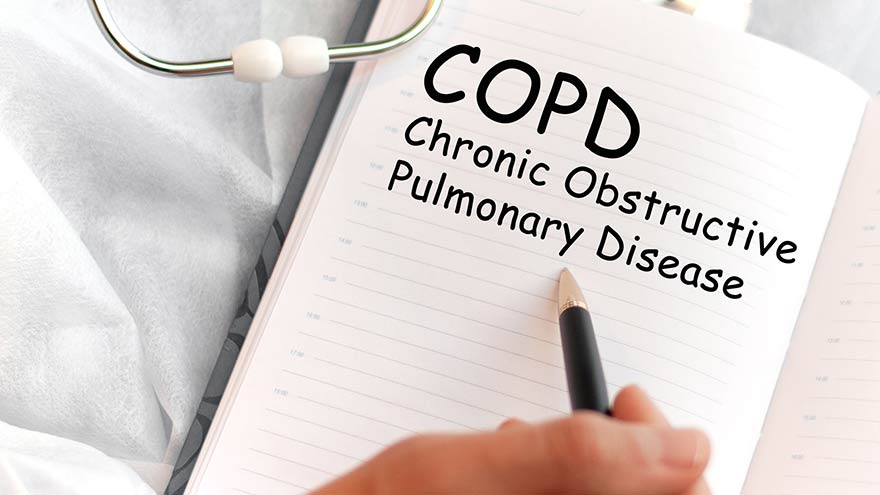COPD Explained: Protecting Your Lungs and Managing Symptoms
October 26, 2023

COPD (chronic obstructive pulmonary disease) is a progressive lung condition often mistaken for typical aging signs, like shortness of breath and coughing. While smoking and pollution can contribute to its development, lifestyle changes and medications can help manage its progression. Diagnosis typically involves lung function tests, chest X-rays, or CT scans, with treatments available through a pulmonologist or primary care provider. Renown’s Pulmonary Rehabilitation Program offers insights into living with COPD.
What is COPD?
According to the COPD Foundation, it is an umbrella term used to describe progressive lung diseases including:
- Emphysema: Damage to the small air sacs in the lungs (alveoli).
- Chronic Bronchitis: Irritation and swelling of bronchial tubes, causing shortness of breath and coughing for long periods of time.
- Asthma (non-reversible): When asthma medications cannot reduce swelling in the airways.
COPD Risk Factors
Smoking is the most significant COPD risk factor, and the American Lung Association (ALA) says it accounts for nearly 90 percent of cases. If you are a smoker, it is essential to seek help and quit.
Other COPD risk factors include:
- Air pollution
- Genetics
- Second-hand smoke
- Chemical, fumes or dust in the workplace
How Can You Protect Yourself?
Stop smoking
Renown Health provides support offering 4-week Smoking Cessation Virtual Classes, free of charge! Sign up today.
Use natural cleaning products
Many household chemicals, especially those containing bleach, can irritate the lungs – a condition called, chemical pneumonitis.
Stay away from all types of smoke
This includes smoke from fireplaces. Likewise, plan to stay indoors when it is smoky outside, or air quality is poor.
Get active
Of course, it’s never too late to start an exercise program. When exercising your heart pumps, circulating your blood and sending oxygen to every part of your body. Notably it strengthens your lungs, making it easier to breath. Talk to your doctor to see if you are healthy enough to begin exercising.
Eat a healthy diet
Surprisingly what you eat can affect your breathing. The American Lung Association encourages those with COPD to watch their sodium intake, eat smaller, more frequent meals (instead of three large ones), limit high fat foods and drink plenty of water.
Avoid scented products
Perfumes, aerosol sprays and plug-in air fresheners can trigger flare-ups.
Get a flu shot
Did you know chronic lung conditions, as well as, heart disease, cancer and diabetes, can be made even worse by the flu? Now is the time to get your flu shot for the season if you haven’t already.
Renown’s Pulmonary Rehab staff is certified through the American Association for Cardiovascular and Pulmonary Rehabilitation (AACVPR). Recently, Renown Regional Medical Center successfully completed a disease specific COPD certification survey by The Joint Commission. For two accreditation cycles in a row, the COPD Program has had zero findings during the rigorous survey.